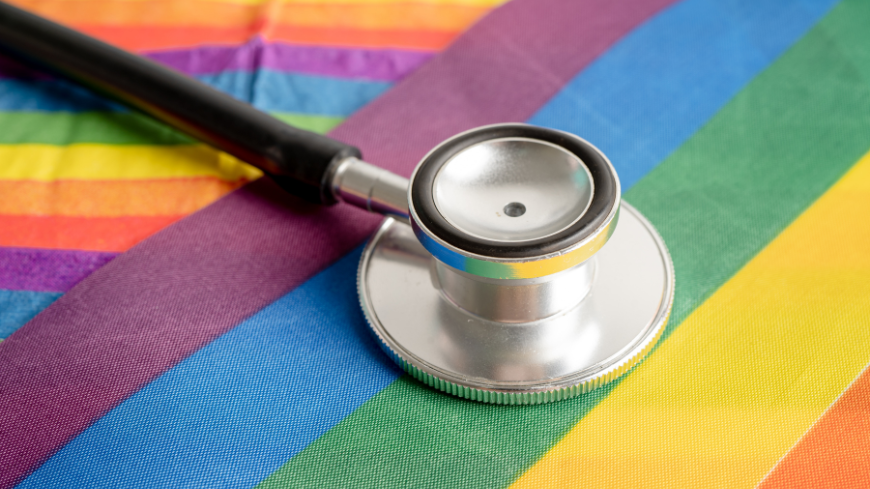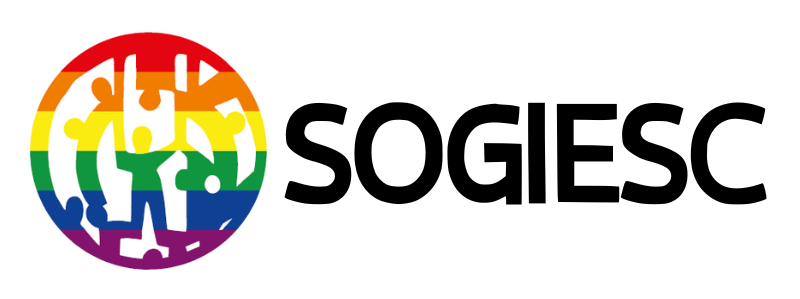Taking a stride towards healthcare equality, the Council of Europe’s SOGI Unit organised a European Roundtable on Advancing Healthcare Access for LGBTI people, on 15 November 2023, which marked the cumulation of ongoing efforts and its commitment to address health inequalities faced by the LGBTI people. The participants and experts delved into multifaceted challenges and proposed solutions, reflecting a shared dedication to fostering an inclusive and affirming healthcare environment and provided a platform for insightful discussions and collaborative efforts.
This roundtable was a crucial component of the Council's annual thematic review of Recommendation CM/Rec(2010)5 of the Committee of Ministers to member states on measures to combat discrimination on grounds of sexual orientation or gender identity. The ongoing thematic review assesses the state of access to health care for LGBTI individuals, scrutinising the discrepancies between the Recommendation and various facets of national legislations, policies, practices, and their consequent impact on healthcare accessibility for these communities. The review places particular emphasis on areas presenting distinct challenges, such as trans-specific healthcare, healthcare for older LGBTI individuals, sexual and reproductive health and rights, and mental health. The insights derived from this review, incorporating the outcomes of the present roundtable discussion, will significantly contribute to the drafting of a detailed European-wide report to be published in 2024.
The European roundtable focused on key issues surrounding healthcare for LGBTI individuals, notably highlighting the pervasive impact of inadequate healthcare practitioner (HCP) training. The lack of adequate training was identified as a root cause, resulting in distressing, stigmatising, and discriminatory encounters for LGBTI patients. The broader implication of these negative experiences is clear in the overall compromised mental, social, and medical well-being of LGBTI individuals, putting them at a health disadvantage compared to the general population.
The discussions underscored the fundamental principle of access to health care as a human right, underlining the urgent need for member states to guarantee timely, acceptable, and affordable healthcare for all, irrespective of sexual orientation, gender identity or expression, and sex characteristics. A poignant aspect of this was the recognition of the profound and long-lasting impact of discriminatory healthcare practices on the marginalised LGBTI communities, such as non-consensual medical interventions, particularly for intersex people, or a lack of patient education, rendering informed consent impossible.
The imperative for disaggregated data was the third key point of the day, acknowledging the scarcity of available data on LGBTI people, and the significance this has for how we and HCPs understand LGBTI health and healthcare needs. Regarding specifically women, trans, and intersex individuals, participants stressed the importance of comprehensive and disaggregated data collection. This call to action aimed at addressing existing data gaps and enhancing the understanding of the unique health needs and challenges faced by different segments within the diverse LGBTI spectrum.
The conversations also delved into the minority stress model, recognising that social determinants play a substantial role in exacerbating the health burden borne by LGBTI individuals. This theoretical framework illuminated the intersectionality of factors contributing to health disparities, encompassing societal attitudes, discrimination, and the lack of legal protections.
Finally, the roundtable brought attention to the multifaceted barriers obstructing access to healthcare for LGBTI individuals. These barriers encompass a deficiency in expertise related to LGBTI-specific health needs, a lack of training among HCPs regarding LGBTI-specific health issues, and the reluctance of LGBTI persons to seek medical assistance, often following negative experiences in healthcare settings.
The identification of these impediments highlighted the need for systemic changes, including targeted training programmes and policy reforms, to foster an inclusive and affirming healthcare environment. The comprehensive understanding of intersecting inequalities forms the basis for advocating holistic approaches to healthcare, which address not only the medical aspects, but also the broader social determinants influencing the well-being of LGBTI individuals.
The event, was opened by Hallvard Gorseth, Head of the Anti-Discrimination Department, and speakers included Susanne Knöfl, Head of Unit, Non-Discrimination: LGBTIQ, Age, Horizontal Matters, at DG JUSTICE of the European Commission; Tatiana Puiu, Vice President, European Committee of Social Rights, Council of Europe; a video message from Tlaleng Mofokeng, UN Special Rapporteur on the right of everyone to the enjoyment of the highest attainable standard of physical and mental health; and Graeme Reide, UN Independent Expert on sexual orientation and gender identity. LGBTI civil society organisation representatives gave critical contributions, including from the leading LGBTI INGO networks in Europe, such as EL*C, IGLYO, ILGA Europe, OII Europe, Rainbow Cities, and TGEU, as well as national NGOs.
The discussions served as a powerful reminder of the state of LGBTI rights in Europe in the realm of health. With standards guaranteeing equity and non-discrimination in access to healthcare for all, anchored in the Council of Europe Recommendation (CM/Rec(2010)5), the European Convention on Human Rights, the European Social Charter, and the United Nations International Covenant on Economic, Social, and Cultural Rights, amongst others, progress has been made in improving healthcare for LGBTI people. Steps like the removal of transgender identities from mental disorders in the World Health Organisation’s International Classification of Diseases (ICD) contribute to this progress. Such standards can and should be leveraged to ensure member states provide access to healthcare, alongside compliance and monitoring. Commitment and dedication to combating SOGIESC-based discrimination remain essential to improve the current situation and rectify inequalities.
More information and Speakers' Presentations
Watch the recording of the European Roundtable on Advancing Healthcare Access for LGBTI People in Europe, 15 November 2023:
Part 1
Part 2




